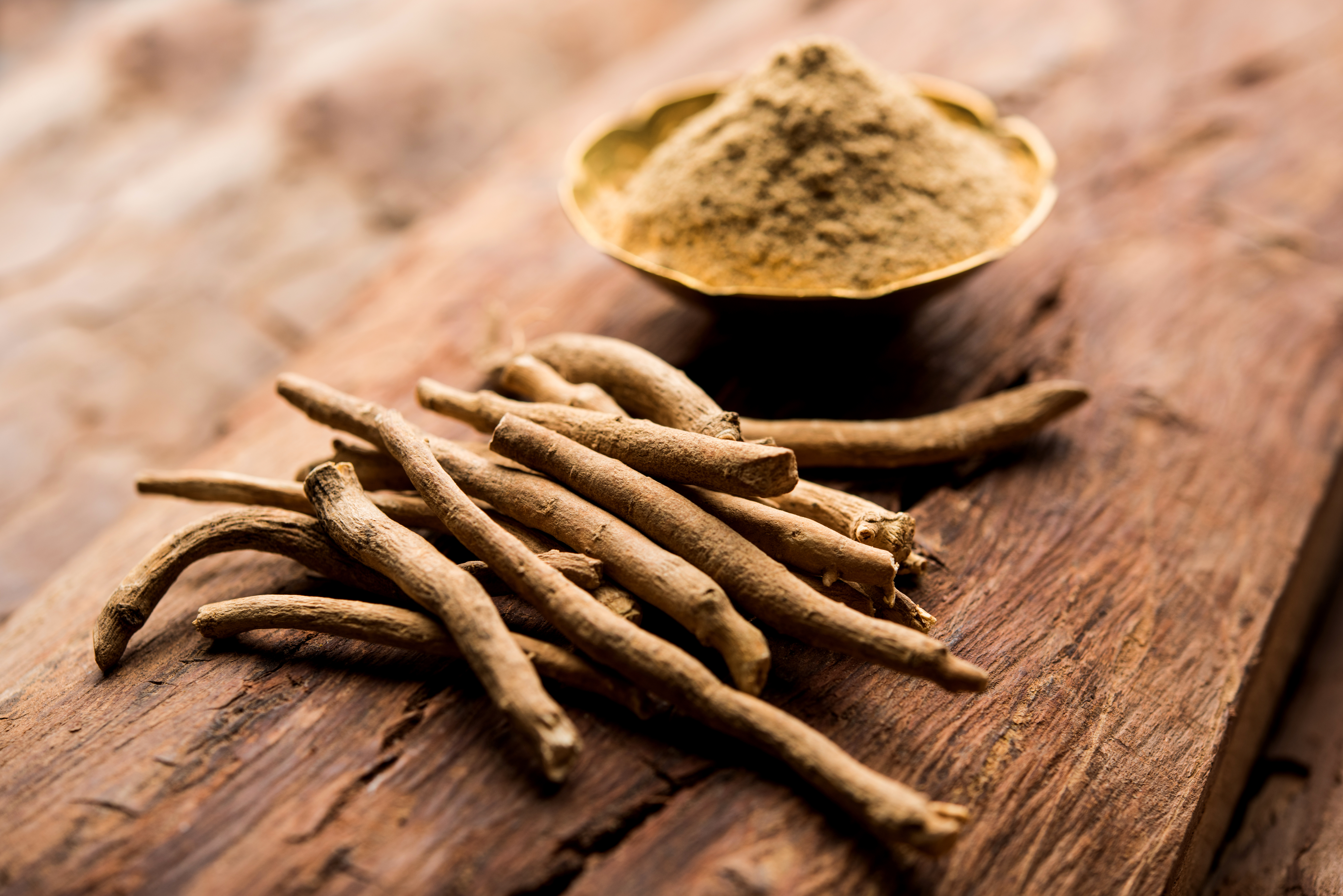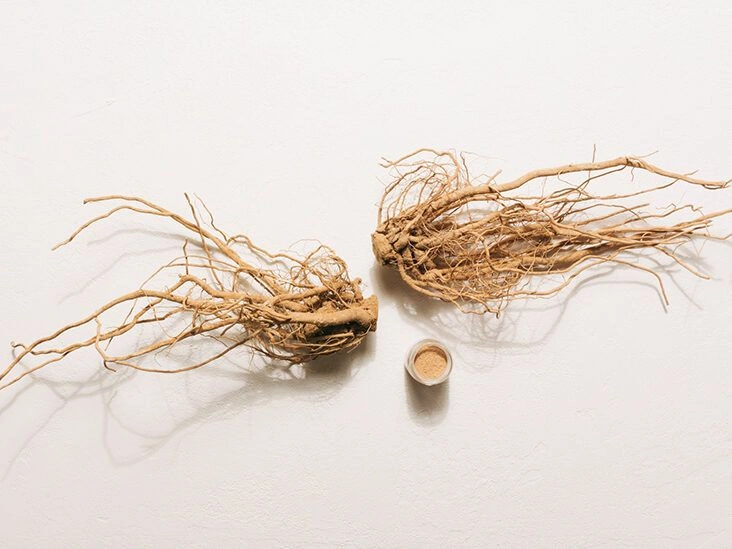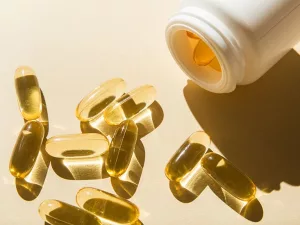Possible advantages of ashwagandha include improved athletic performance and better sleep. Some studies indicate this herb might help people with issues like anxiety and infertility, though larger, higher-quality trials are still required.
Ashwagandha is one of the cornerstone herbs in Ayurveda, a traditional system of medicine from India that emphasizes natural healing principles.
People have used ashwagandha for millennia to ease stress, boost energy, and sharpen focus.
“Ashwagandha” is a Sanskrit term meaning “smell of the horse,” referring both to the plant’s odor and its traditional reputation for increasing strength.
Its scientific name is Withania somnifera, and it’s sometimes called “Indian ginseng” or “winter cherry.”
The ashwagandha plant is a small shrub with yellow blossoms that grows in India and parts of Southeast Asia. Extracts or powders from its root or leaves are used to address a range of complaints, from anxiety to reproductive issues.
Below are eight possible benefits of ashwagandha based on current research.

1. May help lessen stress and anxiety
Ashwagandha is perhaps best recognized for its stress-relieving properties. It’s categorized as an adaptogen, a class of substances that helps the body respond to stress.
Ashwagandha appears to influence stress mediators such as heat shock proteins (Hsp70), cortisol, and the stress-activated kinase c-Jun N-terminal kinase (JNK-1).
It also seems to dampen activity of the hypothalamic-pituitary-adrenal (HPA) axis, the bodily system that regulates the stress response.
Research indicates Ashwagandha supplements may alleviate stress and anxiety.
In a randomized trial with 58 participants, those receiving 250 or 600 mg of ashwagandha extract daily for 8 weeks reported notably lower perceived stress and had reduced cortisol levels compared with placebo recipients.
Participants on ashwagandha also experienced better sleep quality than those taking placebo.
Another trial of 60 participants found that 240 mg of ashwagandha extract per day for 60 days significantly lowered anxiety versus placebo.
Early evidence therefore suggests ashwagandha could be a useful add-on for stress and anxiety management.
However, a review of existing studies concluded that evidence is insufficient to determine the optimal formulation and dosing of ashwagandha for stress-related neuropsychiatric conditions such as anxiety.
SummaryAshwagandha may ease symptoms of stress and anxiety. Still, further research is needed to establish the best forms and dosages for treating stress-related disorders.
2. May enhance athletic performance
Studies suggest ashwagandha might offer benefits for athletic performance and could be worth considering by athletes.
One review pooled 12 studies where doses ranged from 120 mg to 1,250 mg per day and found the herb may improve physical performance, including strength and oxygen utilization during exercise.
Another review examining five trials reported that ashwagandha supplementation significantly increased maximal oxygen uptake (VO2 max) in healthy adults and athletes.
VO2 max is the greatest amount of oxygen the body can use during intense activity and is a key indicator of cardiovascular and respiratory fitness.
A healthy VO2 max matters for both athletes and nonathletes; lower VO2 max is linked to higher mortality risk, while higher VO2 max is tied to reduced heart disease risk.
In addition, ashwagandha may support gains in muscle strength.
In one randomized trial, men taking 600 mg of ashwagandha daily while doing resistance training for 8 weeks achieved significantly greater increases in muscle strength and size compared with the placebo group.
SummaryAshwagandha may improve physical performance measures in athletes and healthy adults, including VO2 max and muscular strength.
3. May ease symptoms of certain mental health disorders
Some findings suggest ashwagandha might help reduce symptoms of various mental health conditions, including depression, in select groups.
In one study of 66 people with schizophrenia who experienced depression and anxiety, those taking 1,000 mg of ashwagandha extract daily for 12 weeks had larger reductions in depression and anxiety than those on placebo.
Limited research from 2013 also indicates ashwagandha could help cognitive deficits in people with bipolar disorder.
A review concluded that ashwagandha may assist in managing depression, anxiety, insomnia, and other neuropsychiatric issues.
Nonetheless, more high-quality research is warranted for these uses.
SummaryPreliminary studies indicate ashwagandha might help reduce depressive symptoms and support people with certain mental health conditions, but additional research is necessary.
4. May raise testosterone and support male fertility
Certain studies have found that ashwagandha supplementation can benefit male reproductive health and increase testosterone.
In one trial, 43 men aged 40–70 who were overweight and mildly fatigued took either ashwagandha extract tablets or placebo daily for 8 weeks.
The treatment group saw an 18% greater rise in DHEA-S, a sex hormone linked to testosterone production, and a 14.7% larger increase in testosterone compared with placebo.
Another study reported that ashwagandha significantly increased sperm concentration, semen volume, and motility in men with low sperm counts. It also improved concentration and motility in men with normal counts.
More trials are needed to confirm these findings.
SummaryAshwagandha may boost testosterone and offer some benefits for male fertility, but further research is required.
5. May lower blood sugar
Limited data indicate ashwagandha could help people with diabetes or elevated blood sugar.
A review that included five clinical trials in people with diabetes found ashwagandha treatment significantly reduced blood glucose, hemoglobin A1c (HbA1c), insulin, lipid levels, and markers of oxidative stress.
Laboratory studies suggest compounds in ashwagandha—including withaferin A (WA)—have antidiabetic properties and may enhance cellular glucose uptake from the bloodstream.
However, current human research is sparse, and more well-designed clinical studies are necessary.
Summary»MORE:Living with diabetes? Explore our top resources.Some evidence suggests ashwagandha may lower blood sugar by influencing insulin secretion and cellular glucose uptake, but more research is needed.
6. May lower inflammation
Ashwagandha contains bioactive constituents, including WA, that may reduce inflammation.
Preclinical studies show WA can lower levels of inflammatory proteins such as interleukin-10 (IL-10), and some human data indicate ashwagandha may decrease inflammatory markers.
In one trial, participants with COVID-19 were given an Ayurvedic formulation containing 0.5 grams of ashwagandha and other herbs twice daily for 7 days, which reduced inflammatory markers CRP, IL-6, and TNF-α versus placebo.
The treatment also included:
- 1 gram of giloy ghanvati (Tinospora cordifolia)
- 2 grams of swasari ras (a traditional herbo-mineral preparation)
- 0.5 grams of tulsi ghanvati (Ocimum sanctum)
Despite these findings, research into ashwagandha’s anti-inflammatory potential in humans remains limited.
SummaryAshwagandha may help lower inflammatory markers, but additional studies are necessary to confirm its anti-inflammatory effects.
7. May support brain function, including memory
Ashwagandha might benefit cognitive performance.
A review of five clinical trials found preliminary evidence that ashwagandha could enhance cognition in certain groups, such as older adults with mild cognitive impairment and people with schizophrenia.
Potential cognitive benefits include improvements in:
- executive function
- attention
- reaction time
- task performance
In a randomized trial of 50 adults, 600 mg of ashwagandha extract per day for 8 weeks produced significant gains in immediate and general memory, attention, and information-processing speed compared with placebo.
Researchers note that ashwagandha compounds, including WA, have antioxidant activity in the brain, which may help cognitive health.
More research is required before firm conclusions can be drawn.
SummaryAshwagandha supplements may enhance memory, reaction time, and task performance in select populations, but further study is needed.
8. May promote better sleep
Many people use ashwagandha to improve sleep, and some research supports this use.
For instance, a trial in 50 adults aged 65–80 found that 600 mg of ashwagandha root daily for 12 weeks significantly improved sleep quality and morning alertness compared with placebo.
A review of five high-quality trials reported that ashwagandha appeared to:
- have a small but significant effect on overall sleep quality
- reduce anxiety
- help people feel more alert upon waking
Benefits were more evident in people with insomnia and in those taking over 600 mg daily for at least 8 weeks.
SummaryEvidence suggests ashwagandha may be an effective natural option to improve sleep, particularly for people with insomnia.
Safety and side effects
Ashwagandha is considered safe for most people when used for up to 3 months, though long-term safety has not been well-studied.
However, ashwagandha may be unsafe for individuals who:
- are pregnant, as high doses might cause pregnancy loss
- are breastfeeding
- have hormone-sensitive prostate cancer
- take certain drugs such as benzodiazepines, anticonvulsants, or barbiturates
- are scheduled for surgery
- have autoimmune or thyroid disorders
- have liver disease
Reported side effects include:
- upper abdominal discomfort
- drowsiness
- diarrhea
- vomiting
Ashwagandha’s effects may take time to manifest, and it might be necessary to use it for several months before noticing benefits.
Always consult a healthcare professional to ensure ashwagandha or other supplements are appropriate for you.
Dosage
Recommended dosages of ashwagandha vary. Studies have used daily doses from 250–1,250 mg for different outcomes. Talk with a healthcare provider if you have questions about dosing.
Ashwagandha can be taken as a single daily dose or split into multiple doses, and it may be taken with or without food.
How much ashwagandha can you take per day? Learn more from a medical expert.
SummaryAlthough ashwagandha appears safe for most people, it isn’t suitable for everyone. Consult a healthcare professional before starting ashwagandha to confirm it’s safe and to determine an appropriate dose.
Frequently asked questions
What are the benefits of taking ashwagandha?
Potential benefits include:
- reducing stress
- improving sleep
- enhancing athletic performance
- supporting memory
- increasing male fertility
- reducing inflammation
- helping regulate blood sugar
What happens when you take ashwagandha daily?
Effects often develop gradually, so clinicians may suggest one daily dose. Long-term effects remain unclear, and experts typically recommend short-term use (up to 3 months) unless supervised by a provider.
Who should not take ashwagandha?
Ashwagandha may be unsafe:
- during pregnancy
- while breastfeeding
- for people with prostate cancer, thyroid issues, or autoimmune diseases
- prior to surgery
- for those with liver disease
- if taking benzodiazepines or other interacting medications
Always consult a healthcare professional before using ashwagandha.
Why is Ashwagandha not FDA-approved?
As a natural herbal supplement, Ashwagandha is not regulated as a drug by the U.S. Food and Drug Administration (FDA).
The bottom line
Ashwagandha is an ancient medicinal herb with several possible health benefits.
Research suggests it may reduce anxiety and stress, support better sleep, and potentially improve cognitive function in certain populations.
Short-term use of ashwagandha appears safe for most people, but it isn’t appropriate for everyone. Talk with a healthcare professional before adding ashwagandha to your regimen.

























Leave a Reply
You must be logged in to post a comment.